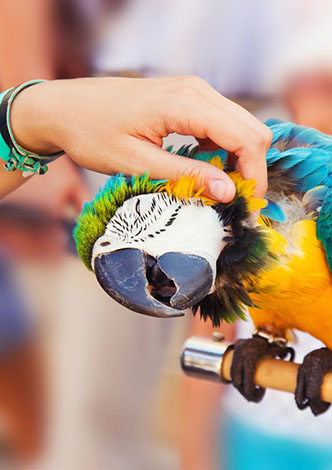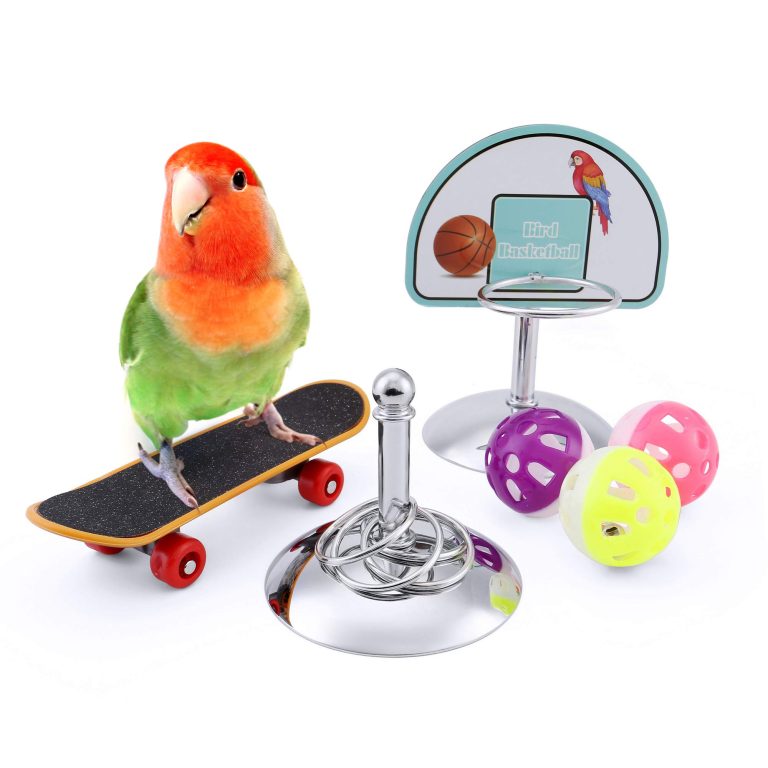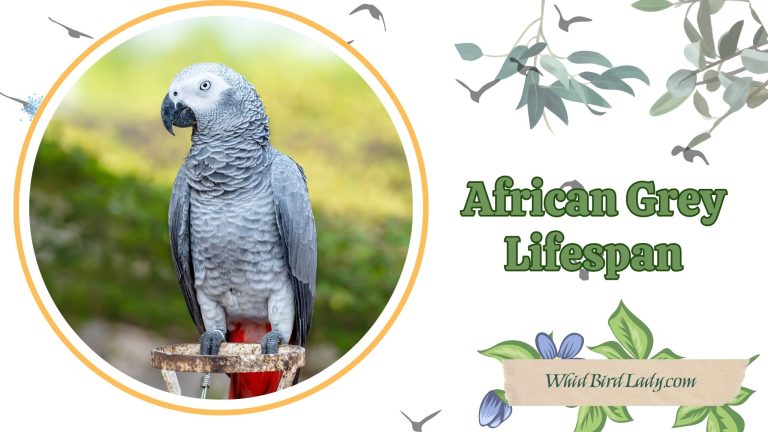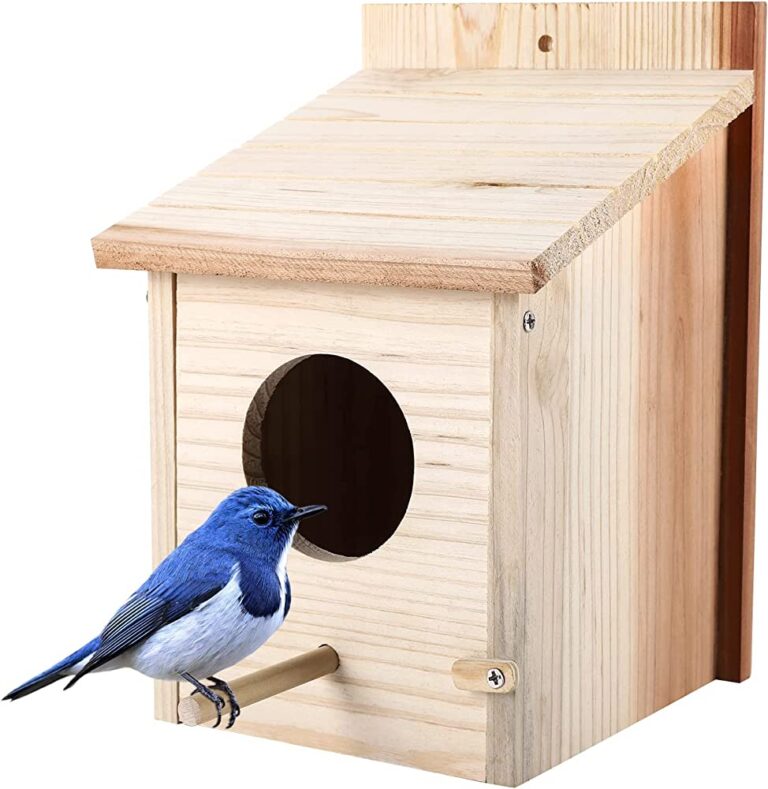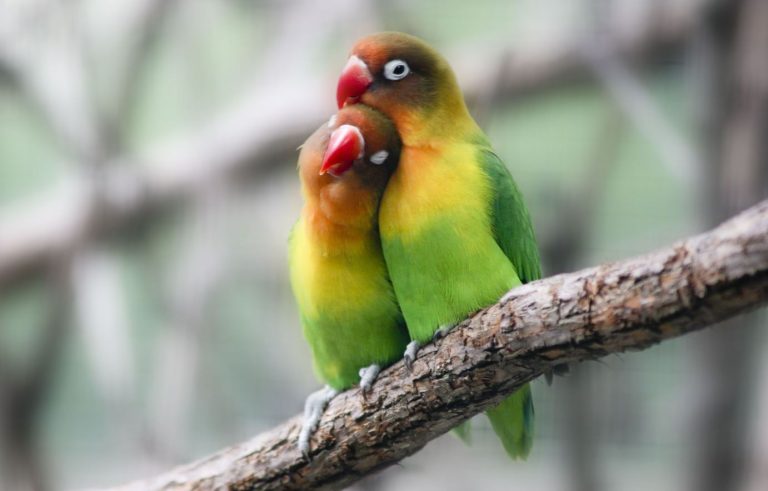Step-By-Step Guide: Potty Train Your African Grey Parrot with Ease
To potty train your african grey parrot, consistently take them to their designated spot and give a specific cue word until they eliminate. In this way, your bird can associate the cue word with pooping and peeing regularly.
Keep repeating this process until they begin to recognize and respond to the cue word, and gradually reduce the frequency of taking them to their designated spot. Potty training an african grey parrot is an essential task for any bird owner, as it helps to maintain cleanliness and hygiene in your home.
While some people may think that this is a challenging task, it is quite simple if you follow the right approach and are consistent in your training. The key to success is to understand your bird’s behavior and communicate effectively with them. In this article, we will guide you step-by-step on how to potty train your african grey parrot. So, let’s get started!
Credit: en.wikipedia.org
Preparing For Potty Training
Understanding Your African Grey Parrot’S Habits
Before starting the potty training, it is essential to comprehend your african grey parrot’s defecation habits. Observing your parrot for a couple of days can give you a good idea of the frequency and time of their bowel movements. As a general rule, african grey parrots usually relieve themselves first thing in the morning and after they have eaten.
Still, this can vary from bird to bird, so it is crucial to notice their individual habits.
Identifying The Right Time To Start Potty Training
The best age to begin potty training your african grey parrot is between six months and one year old. At this age, they are mentally and physically mature enough to learn new habits and routines. Potty training a parrot requires patience and significant effort, so it is essential to make sure you have enough time and energy to commit to the process.
It is also crucial to remember that every bird is different, and some may take longer than others to learn.
Choosing The Right Potty Training Equipment
Choosing the right equipment can make a significant difference in potty training your african grey parrot. Here are a few things you can consider while selecting the supplies:
- Potty perch or stand: You can purchase a perch or stand that can serve as a designated potty area for your bird.
- Training pads: You can also use training pads or a tray underneath the stand to catch droppings.
- Positive reinforcement: You can also use treats and praise to encourage good behavior during potty training.
Setting Up A Designated Potty Area
To avoid confusion, it is essential to set up a designated potty area for your african grey parrot. Place the potty stand or perch in a location where your bird spends most of their time. In the initial phase, limit their movement to a more confined area to encourage them to use the designated spot.
Consistency is key, so make sure you always bring your bird to the designated area after waking up, eating, or drinking.
Techniques To Encourage Your Parrot To Use The Designated Area
Potty training can be a challenging process, but it is essential to remember that positive reinforcement is everything. Patience, consistency, and rewards will help your african grey parrot learn to use the designated potty area. Here are some methods to encourage your parrot to use a designated potty area:
- Use verbal cues: Use words such as “go potty” or “let’s go” when leading them to their designated potty area.
- Offer treats: Offering treats immediately after they’ve used the designated area will enforce excellent habits.
- Remain patient: Don’t punish your parrot if they make a mistake. Instead, take them calmly and positively to the designated area to reinforce the right behavior.
By following these tips, you can effectively potty train your african grey parrot and maintain a clean and hygienic environment. Remember, patience and consistency are essential, and with some positive reinforcement and training, your parrot can learn to use their designated potty area with ease.
Step-By-Step Process For Potty Training
Potty training an african grey parrot can seem like a daunting task, but it doesn’t have to be. With patience, consistency and positive reinforcement, a routine can be established that makes this training process easy. Here’s a step-by-step guide to help you through the process.
Establishing A Routine For Your African Grey Parrot’S Potty Breaks
The first step in potty training your african grey parrot is to set up a routine for their potty breaks. Here are some key points to consider:
- Take your parrot to the designated potty area on a regular basis, ideally every 30 minutes, particularly after meals or sleep.
- Be patient and give your parrot enough time to respond.
- Use consistent verbal cues or phrases when you want them to go potty. For instance, say “go potty” or “do your business” when they are in the designated area.
- Be sure to reward your parrot with treats, praises, or affection immediately after they go potty in the designated area.
Reinforcing Positive Behaviour Through Rewards
Like any other creature, african grey parrots need encouragement to maintain positive behaviour. Here are some tips on how to reinforce good behaviour in your parrot:
- Offer positive stimuli, such as rewards immediately after your parrot completes the desired behaviour.
- Make the rewards something that your parrot likes and enjoys, such as their favourite treat or affection.
- Regularly praise your parrot when they perform the desirable behaviour.
- Establish a consistent routine that will help your parrot learn when they will receive rewards.
Discouraging Negative Behaviour Through Negative Reinforcement
African grey parrots can learn which behaviours are not acceptable if their negative actions have negative consequences. Some ways to discourage negative behaviour include:
- Use a verbal cue or phrase when your parrot performs an undesirable behaviour, such as “no!” Or “stop it!”
- Use negative consequences that your parrot does not like. For example, stop petting your parrot when they bite or fly away.
- Make sure the negative consequences fit the negative behaviour, such that the parrot links the two together.
Dealing With Potty Accidents During Training
Potty accidents can happen during the training process, but don’t worry! Here are a few tips to help clean up any messes and continue with training:
- Clean the mess immediately so that the parrot doesn’t go back to the same spot.
- Use an enzymatic cleaner, which will help break down and remove any trace of the urine or faeces.
- Do not punish or scold your parrot for accidents as it could make the process tougher. Instead, encourage and positively reinforce good behaviour in future.
Remember, patience and persistence will help you succeed in potty training your african grey parrot. Don’t forget, your bird wants to please you, so be sure to offer rewards, praise and affection. Soon your parrot will be going potty like a pro!
Troubleshooting Common Issues During Potty Training
Potty training your african grey parrot can be a delicate process, and issues may arise along the way. Troubleshooting common problems during the potty training process is crucial to ensure success. In this section, we will discuss how to identify and deal with regression, what to do if your parrot seems uninterested in the training, tips for overcoming fear of the designated potty area, and how to address territorial behaviour.
Identifying And Dealing With Regression In Potty Training
Regression can occur for various reasons, including changes in routine or environment or illness. If your african grey parrot starts to defecate outside of the designated potty area, it could be experiencing regression. Here are some tips for dealing with regression:
- Start by reviewing your potty training routine. Have there been any changes that could have caused the regression? Try to identify any changes and address them accordingly.
- Re-establish the potty training routine. Take your parrot to the designated potty area frequently, especially after meals and naps.
- Reinforce positive behaviour with rewards. Praise your parrot when they defecate in the designated area and reward them with treats or positive attention.
Dealing With Parrots Who Seem Uninterested In Potty Training
Sometimes, parrots may seem uninterested in potty training. This could be due to the training process being too long or confusing for them. Below are some tips to help spark the interest of your african grey parrot:
- Shorten the training sessions to avoid overwhelming your parrot. Break up the training sessions throughout the day to ensure your pet bird stays engaged.
- Try using positive reinforcement. Offer tasty treats or heaps of praise when your parrot defecates in the designated potty area.
- Consider re-evaluating your chosen method of potty training. Research and explore new training methods that may work better for your bird.
Tips For Overcoming Fear Of The Designated Potty Area
Sometimes, african grey parrots may have a fear or dislike towards their designated potty area. Here are some tips to help overcome this fear:
- Spend time bonding with your parrot near the designated potty area. This will help your bird associate positive emotions with the area.
- Try using a different designated potty area. Using a different area can help your bird disassociate any negative feelings with the original area.
- Provide positive reinforcement when your bird defecates in the designated area. This will help them realise that this is a safe and good behaviour area.
Addressing Issues With Territorial Behaviour
Some african grey parrots may show territorial behaviour around their designated potty area. Here are some tips to help address this behaviour:
- Use positive reinforcement to help your bird associate positive emotions with the potty area.
- Avoid using negative reinforcement such as punishment or scolding. This may cause your bird to fear the area even more.
- Consider gradually increasing the distance between the designated area and any perches or toys to discourage territorial behaviour.
Maintaining Good Potty Habits After Training
Now that you have successfully trained your african grey parrot to use their designated potty area, it is essential to maintain their good potty habits. Incorporate these tips to ensure that your bird continues to use their designated potty space.
Maintaining A Regular Potty Schedule
- Stick to a consistent routine and ensure that your african grey parrot has regular access to their designated potty area.
- Observe your bird’s behavior and note when they usually eliminate waste, including the time of day and frequency.
Tips For Maintaining The Designated Potty Area
- Keep the designated potty area clean and disinfected at all times to maintain good hygiene.
- Use litter that your bird is comfortable with and make sure that the litter is always fresh. Change the litter frequently.
- Avoid placing the potty area near their food and water, as birds generally do not want to eliminate near their eating space.
Incorporating Good Potty Habits Into Your African Grey Parrot’S Daily Routine
- Encourage your bird to use their designated potty area by praising them each time they do so.
- Observe your bird’s behavior and body language for signs that they need to eliminate. Some signs include straining, fluffing up their feathers, and turning their back to you.
- If your bird does not use their designated potty space, do not punish them. Instead, gently guide them towards the potty area and offer positive reinforcement when they successfully use it.
Final Thoughts On Potty Training For African Grey Parrots
Maintaining good potty habits is an ongoing process, and it is essential to be patient and consistent with your efforts. By following the above tips, you can ensure that your african grey parrot continues to use their designated potty space with ease, making your life and theirs much more comfortable.
Frequently Asked Questions On Step-By-Step: How To Potty Train Your African Grey Parrot
How Long Does It Take To Potty Train An African Grey Parrot?
It usually takes 6 months to a year to potty train an african grey parrot.
What Is The Best Way To Potty Train An African Grey Parrot?
The best way to potty train an african grey parrot is to use positive reinforcement techniques.
Can You Potty Train An Older African Grey Parrot?
Yes, older african grey parrots can be potty trained but it may take longer than younger birds.
What Are The Signs That An African Grey Parrot Needs To Go Potty?
Some signs that an african grey parrot needs to go potty include fidgeting, flapping, or vocalizing.
How Often Should I Take My African Grey Parrot To Their Designated Potty Area?
In the beginning, take your african grey parrot to their designated potty area every 20-30 minutes. Increase the time as they become more trained.
Conclusion
Congratulations! You have successfully learned how to potty train your african grey parrot by following these step-by-step instructions. Remember, patience and consistency are key when training your parrot, especially when it comes to potty training. Always praise your parrot for good behavior and never punish them for accidents.
By providing a comfortable and safe environment, you can create a routine for your parrot to follow and successfully potty train your feathered friend. With patience and practice, potty training will become second nature for both you and your african grey parrot.
Don’t forget to keep up with their overall health and well-being to ensure a happy and healthy life for your beloved pet. Happy potty training!

